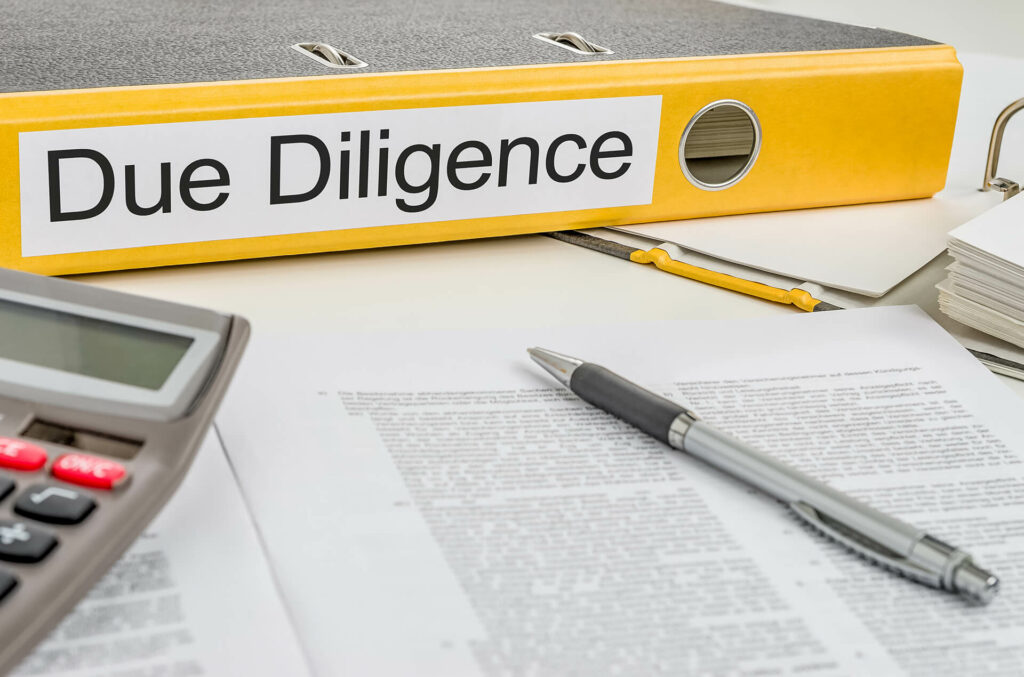Due diligence is a critical process in the realm of business and investment, particularly in a unique and dynamic market like Thailand. Whether you’re entering into a joint venture, acquiring a company, investing in property, or forming business partnerships, conducting thorough due diligence is essential to safeguard interests, reduce risks, and ensure compliance with local laws and regulations. Thailand, with its emerging market characteristics, diverse business culture, and evolving legal framework, demands even more attention to detail for successful investments and business operations.
Understanding Due Diligence
Due diligence refers to the investigation or audit of a potential investment, acquisition, or business partner to confirm all relevant facts and financial information, and to uncover potential risks or liabilities. This includes reviewing financial records, legal documentation, corporate structure, regulatory compliance, assets, debts, and other operational aspects.
In Thailand, due diligence is particularly crucial due to factors such as language barriers, complex land ownership laws, and differences in business practices compared to Western countries. While the country offers numerous investment opportunities, it also presents risks that must be carefully assessed before proceeding with any transaction.
Why Due Diligence is Important in Thailand
1. Legal Compliance and Risk Management
Thailand has a unique legal system influenced by both civil law traditions and its own specific statutes. Foreign investors are often unfamiliar with Thai laws, which can result in accidental violations. Due diligence helps identify whether a business is in compliance with labor laws, tax regulations, zoning laws, environmental laws, and foreign ownership restrictions.
For example, certain sectors in Thailand are restricted or require special licenses for foreign entities. Conducting legal due diligence ensures that the company or asset is operating within the legal framework, reducing the risk of penalties, fines, or loss of investment.
2. Identifying Financial Liabilities
Financial due diligence in Thailand reveals the true financial health of a business. This includes verifying income, debts, expenses, and tax obligations. Many local companies may not follow international accounting standards strictly, and some financial data might be incomplete or misstated.
Through thorough analysis of financial statements, tax filings, and audits, potential investors can determine whether the business is financially sound and identify any hidden liabilities or risks. This helps avoid unexpected financial burdens after a transaction is completed.
3. Uncovering Ownership and Title Issues
Thailand has strict rules regarding foreign ownership, particularly in land and property. Foreigners cannot own land in their name, and alternative structures (such as long-term leases or nominee arrangements) are often used. However, these structures can be legally risky or even unenforceable if not properly structured.
Due diligence can confirm whether land titles are clean and unencumbered, and whether any restrictions or liens exist. This is particularly important in real estate transactions where title fraud or unclear land rights can cause significant financial and legal trouble.
4. Ensuring Reputable Business Partners
Cultural and language differences in Thailand can make it challenging to assess the credibility of business partners. Personal relationships often play a significant role in Thai business culture, which may obscure red flags that would otherwise be evident in more transactional environments.
Conducting background checks, reviewing litigation history, and verifying corporate records through due diligence ensures that potential partners have a solid reputation and ethical business practices. This is especially critical in joint ventures or partnerships where the actions of a partner can directly impact your investment.
5. Verifying Intellectual Property and Contract Rights
For businesses entering Thailand’s manufacturing, technology, or creative sectors, intellectual property Thailand rights are crucial. Due diligence includes reviewing trademark and patent registrations, software licenses, and other IP assets to ensure they are properly owned and protected.
Additionally, it’s important to assess the validity and enforceability of contracts, especially those involving suppliers, customers, or employees. Language barriers and differing legal interpretations can lead to misunderstandings or disputes, which proper due diligence can help avoid.
6. Regulatory and Political Landscape Awareness
Thailand’s political environment can be volatile, with periodic changes in leadership, military influence, and regulatory shifts. Due diligence includes assessing the regulatory risks that could affect a particular industry or investment.
Understanding the local regulatory climate helps investors prepare for potential changes in laws, tariffs, or enforcement practices. It also informs strategic planning, allowing companies to adjust their operations in line with government policies or economic priorities.
Types of Due Diligence in Thailand
-
Legal Due Diligence – Review of legal documents, business licenses, ownership structures, litigation history, and compliance with local laws.
-
Financial Due Diligence – Analysis of audited financial statements, tax returns, debts, liabilities, and revenue streams.
-
Operational Due Diligence – Assessment of internal processes, supply chain integrity, IT systems, and HR policies.
-
Commercial Due Diligence – Market analysis, competitive landscape, customer base evaluation, and revenue potential.
-
Real Estate Due Diligence – Verification of land titles, zoning compliance, building permits, and environmental assessments.
Common Challenges in Thailand’s Due Diligence Process
-
Language Barriers: Most documents are in Thai, requiring reliable translation and local expertise.
-
Limited Public Access to Records: Not all corporate or property information is readily available online or in English.
-
Informal Business Practices: Some Thai businesses may operate partially “off the books,” which can obscure true financial or operational performance.
-
Cultural Differences: A strong emphasis on relationships over documentation can make formal due diligence seem intrusive to local partners.
These challenges reinforce the need for experienced local advisors—lawyers, accountants, and consultants—who understand the Thai business environment and can conduct thorough investigations on your behalf.
Conclusion
Due diligence in Thailand is not just a legal formality—it is a vital process that can make or break a business venture or investment. With its unique legal system, cultural nuances, and regulatory landscape, Thailand presents both opportunities and risks that require a well-informed and cautious approach. Whether entering into partnerships, acquiring businesses, or investing in real estate, thorough due diligence ensures you are making informed decisions, protecting your interests, and setting the foundation for long-term success.
By investing time and resources into due diligence, foreign investors and local entrepreneurs alike can navigate Thailand’s complex business terrain with greater confidence and security.






















